Introduction:
In Canada, the use of physical force without consent is a criminal offense. However, Canadian law acknowledges specific situations where individuals can justify using physical force, such as self-defence. While personal beliefs about self-defence vary, Canadian law outlines precise criteria for its application. If you believe self-defence is applicable in your case, consulting a lawyer is essential to navigate the complexities of this defense.
When Does Self-Defence Apply?
When accused of assault, claiming self-defence isn’t enough; it must meet the stringent criteria outlined in Section 34 of the Criminal Code of Canada. The prosecution bears the burden of proving, beyond a reasonable doubt, that self-defence doesn’t apply. Self-defence necessitates:
- Reasonable Belief in Threatened/Actual Force: The accused must reasonably believe force was being used or threatened against them, regardless of the actual threat.
- Act Done for Protecting or Defending Self: The accused’s actions must be solely for defending themselves from the use or threat of force.
- Act Reasonable in the Circumstances: The accused’s response must be reasonable concerning the force used or threatened against them.
Onus on the Crown:
The burden to prove the absence of self-defence elements falls on the prosecution. While the accused doesn’t have to prove self-defence, they must provide enough evidence to establish its possibility, often by testifying.
When Self-Defence Does Not Apply:
Self-defence cannot be claimed when resisting arrest or during encounters with law enforcement, except if the accused believes, on reasonable grounds, that the police are acting unlawfully. Intoxication does not justify self-defence; actions are compared to a reasonable, sober person’s response.
Consulting a Lawyer:
Navigating self-defence laws in Canada requires expertise. If your case hinges on self-defence, seeking legal advice from Smyllie Law can make a difference. Contact us for a free consultation to understand your options.
